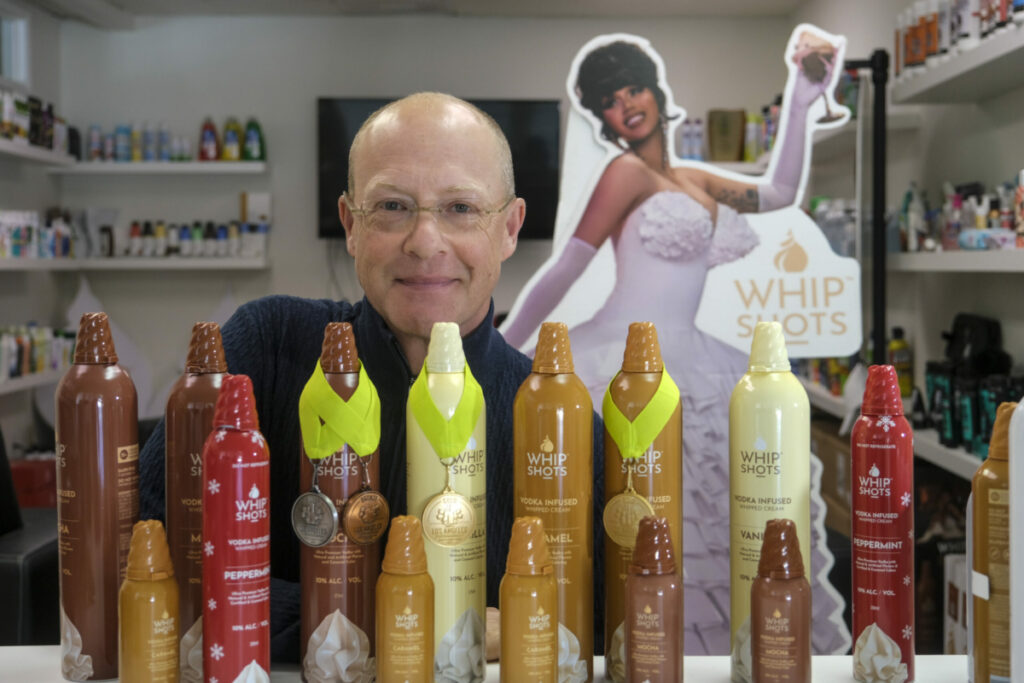Santa Monica-based Starco Brands has delved further into the consumer products market with the acquisition of meal replacement-product developer Soylent, which is led by Chief Executive Demir Vangelov. The deal marks Starco’s third acquisition in just six months.
As part of the deal, Soylent shareholders will take shares in Starco Brands, which trades on the over-the-counter market and closed at 17 cents on March 3.
Starco Chief Executive Ross Sklar, who now controls approximately 83% of Starco shares, said his company looked at the acquisition almost as if it were a “tech play,” saying that Starco was impressed with the evolution of Soylent’s product and value proposition.
Soylent was founded in 2013 and sells plant-based protein and meal-replacement shakes, powders and bars that are low in sugar and high in protein. A one-time purchase of a 12-pack of Soylent’s chocolate protein shakes costs $45, or $3.75 a bottle. Customers can also subscribe for deliveries at lower price points or find them at retail stores including Walmart and Target.
Soylent, located downtown, has raised nearly $134 million in funding through seven rounds that included investors such as Google Ventures and Andreessen Horowitz. Its $20 million series A funding round took place in January 2015.
The company’s early reliance on such funding faded by 2021, when it had become operationally profitable, according to Vangelov in an interview with Food Navigator USA. Vangelov joined the company in 2020 and made several changes that involved a restructuring of the management team and slashing spending on customer acquisition spending. He also pulled Soylent out of the United Kingdom.
Rapid scaling
Sklar lauded Soylent’s journey as a growing company, saying it has come a long way from its early days. “We’re product people first, so we were super impressed with the evolution of their product and the company’s value proposition.”
“We’re pretty picky when it comes to (mergers and acquisitions) because on the other side of the ledger we’re home-growing our own intellectual property and curating brands around it,” Sklar continued, adding that the company prioritizes what he calls “whitespace” in the brands that Starco acquires and seeks to grow.
Sklar defined “whitespace” as untapped markets that certain brands can touch on through celebrity and influencer partnerships, brand extension, intellectual property development and more.
Taking these initiatives, Sklar said, allows Starco to scale a brand in a short period of time.
Starco’s portfolio includes products such as Winona Pure popcorn spray, Skylar fragrances and Whipshots, a vodka-infused whipped cream that is promoted by Grammy Award-winning rapper Cardi B.

The acquisition of Soylent is Starco’s first foray into meal-replacement products. There is, however, some expertise that Sklar and his team bring to the table regarding the new vertical.
Sklar noted that he and The Starco Groups, the chemical-manufacturing sister company of Starco Brands that services retailers, gives Starco a leg up in manufacturing and related operations.
“We’ve been manufacturing chemicals — and under the umbrella of chemicals is food, beverage, personal care, so on and so forth — for a really long time,” Sklar said. “From a manufacturing vantage point, technology, research and development, formulary, all that sort of stuff is right in the strike zone for us.”
Sklar’s manufacturing prowess will be useful for Soylent, which in addition to growing its brand will also be competing with others in a busy market.
In a 2022 meal replacement report from Polaris Market Research, the firm valued the global meal replacement market $11.9 billion in 2021.
The report found that the Covid-19 pandemic had a positive impact on the market. “The demand for the industry during the period intensified owing to the increased consumer awareness regarding a healthy diet,” the report said.
Caleb Bryant, associate director of food and drink reports for market research company Mintel, identified meal replacement and food company Huel as a direct competitor to Soylent. “Huel really focuses on that convenience angle and being that all-in-one nutrition source,” he said.
Huel is based in New York and sells meal-replacement beverages, protein bars, powders and hot and savory instant meals. Huel’s brand is also plant-based.
Huel, founded in 2014, closed a $24 million investment round in December with participation from venture capital firm Highland Europe and actor Idris Elba. Following the funding, Highland valued the company at $560 million.
Soylent competition
Bryant said that although they are not as similar to Soylent as Huel is, companies such as Koia, Urban Remedy and Venus Williams-cofounded Happy Viking provide some competition for Soylent.
“There’s so many high-protein snacks out there, so it’s just a lot of competition when you’re talking about nutrition drinks, and then there’s just a lot of innovation and plant-based (products) in general,” Bryant said. “Protein content is by far the most important attribute to consumers when purchasing a nutrition drink, so with many plant-based products it’s finding that balance of hitting the nutritional content consumers want and expect, but also having good product taste.”
Rising inflation could play a role in Soylent’s performance, according to Bryant, who said that consumers are rethinking and reprioritizing their purchases across all food and drink categories. Consumers may, he said, find protein products like Soylent’s too expensive.
Sklar acknowledged the litany of economic challenges impacting consumers and businesses alike, but expressed confidence in Starco’s work as a small company with a manufacturing background. He said that Soylent had room to grow in terms of retail distribution and overall size.
“Our goal is to take this business to a level that will be considered a macro brand,” he said. “We think we’ve got a pretty good roadmap to get there by exploiting those markets with current products, new products, and the help of some of our partners in the influencer and celebrity space.”
